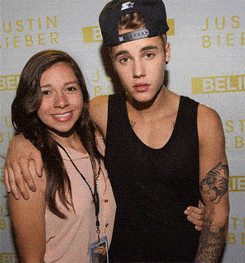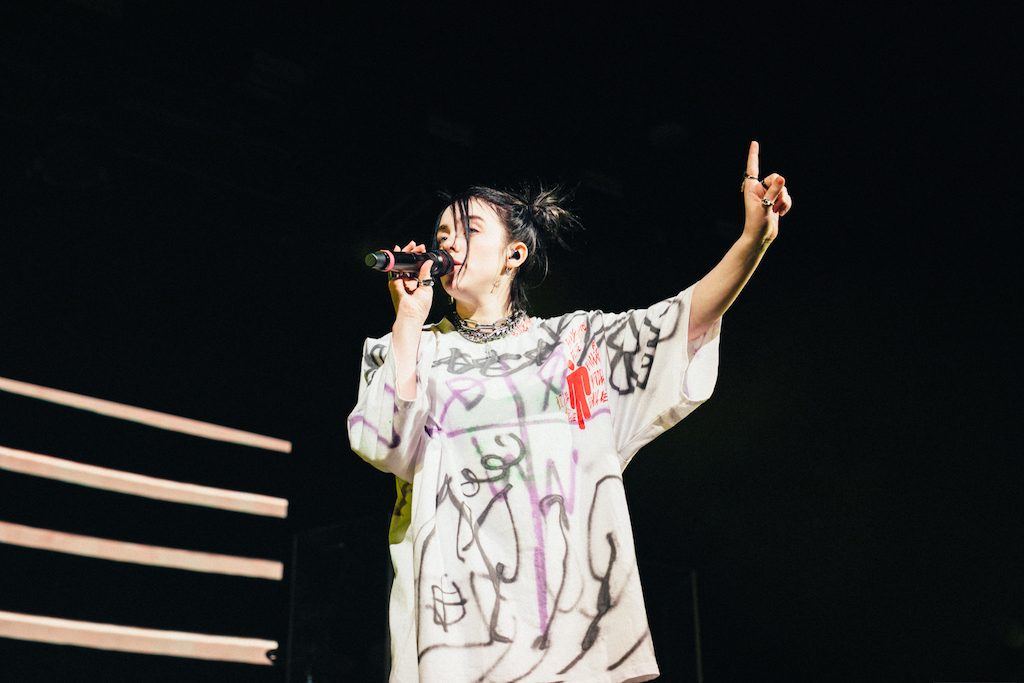From Awkward To Deadly: How The Artist Meet-And-Greet Got Ugly
Whether it’s a power grab or an inflated sense of entitlement, fans are increasingly ignoring the boundaries and safety of the artists they love.

Unlike most celebrities, Charli XCX enjoys the chaotic revelry of the meet and greet. “I genuinely want to hear from you all,” she wrote in an impassioned Twitter statement a few weeks ago.
In the span of two months, Charli had posed for photos with a number of controversial objects at the behest of her most loyal fans. From a bottle of poppers to the ashes of a fan’s mother, she took each moment in her stride. Until one day in October, Marcus, who calls himself “Gay Twitter’s enema of the state”, posted a photo of a douche he got signed by Charli.
The internet blew up, op-eds followed — Music Junkee’s Jared Richards wrote one himself — and Charli attempted to put an end to the furore, writing: “These articles popping up about my meet and greets suggesting that fans are taking advantage/being abusive/using me for ‘online clout’ because of certain items that have been signed or brought along to meet and greets are just so ridiculous and pretentious.”
Charli may be able to wave away concerns about fan behaviour, but the recent blow-up was just the latest in a string of awkward and disturbing incidents to occur at meet and greets over the last decade. So why does it seem to be getting worse?
From The Awkward To The Inappropriate
Meet and greets have always been the subject of controversy, but the dynamic has dramatically changed with the evolution of fandom over the last decade. Some may remember what it was like to trawl through the pages of TV Hits magazine, looking for a postal address to send their favourite acts fan mail (TLC literally dedicated an album to it). Crafting a letter on the off chance it would be read by your idol feels like a relic of the past, and that’s because it is.
Now, shelling out four figures to meet a famous singer, rapper, or pop star isn’t unusual. VIP tickets to meet Britney Spears cost fans at her Las Vegas show $2500. Avril Lavigne, who implemented a ‘no touching’ rule, charged $400 for a brief hover hand, while Justin Bieber cashed in with $2000 meet and greets and made the same pained expression in every photo.

Gif: getoffmybloghoe.tumblr.com
On YouTube, in a video titled “Britney Spears meet and greet: worst experience ever!”, a fan called Marta sounds off on her disappointing encounter. “Britney’s concert is just starting but I’ve decided to leave… I’m never, ever, ever again coming to a Britney show,” she begins. Detailing how Spears called security on her after she touched the pop star’s back while posing for a photo, Marta describes how she was mocked and made fun of before being escorted out.
While artists like Charli can hold their own when it comes to raucous fan requests, others aren’t so equipped — and they shouldn’t have to be.
I end up feeling so drained and filled with so much of other people’s spiritual energy that I end up so…unhappy.”
But as one celebrity defends their fans’ questionable conduct, others are determined to raise the bar. Summer Walker recently held a series of meet and greets following the breakout success of her debut record, Over It. She requested that fans do not touch her, but they weren’t impressed. “For those who’re upset because I don’t give hugs I don’t know what to tell you,” she wrote in an Instagram post. “I’m an empath, and that transference of energy from that many people each day would literally KILL me.” The R&B singer also opened up about her social anxiety, which many fans dismissed altogether.
Walker’s statement echoes one from Bieber, who in 2016 announced he wouldn’t be continuing meet and greets. “I enjoy meeting such incredible people,” he wrote on Instagram. “But I end up feeling so drained and filled with so much of other people’s spiritual energy that I end up so…unhappy.”
One fan described her encounter with Walker after buying tickets to her meet and greet. “Such an anticlimactic and disappointing experience meeting Summer Walker,” they wrote on Instagram.
“Not only did she move the meet and greet last minute to after the show, the meet and greet itself was literally five seconds. We were informed to have our phones out, ready with flash, and not to sit too close or touch her. She barely spoke to anyone, every couple of people she’d say ‘Hi’ …I really idolised her and her work. I knew she was an introvert and kind of closed off but there was no effort in this at all, whatsoever. For a fan who supports you and your music!”
A Twitter user responded: “Y’all gone learn that y’all buy the music. Not the person. The MUSIC. Your idolisation is your own fault. Not theirs.”

Billie Eilish at Sydney’s Hordern Pavilion. Photo: Mikki Gomez
From The Inappropriate To The Deadly
These are, unfortunately, the kind of horror stories we expect from fans meeting their heroes in such uncomfortable and frenzied events. Now though, whether it’s a power grab or an inflated sense of entitlement, fans are becoming the bearers of bad, and dangerous, behaviour; it’s difficult to ignore the declining level of safety at meet and greets for both fans and artists alike.
In 2014, Ariana Grande ended a meet and greet early after a contest-winner handed her a photo of her late grandfather. “My heart is still healing and it’s moments like that that make it real again that he’s gone,” Grande said. “I wasn’t expecting it and [it] hit me like a ton of bricks.”
The fan’s father wrote a 2,700-word tirade in response. “[Grande] spent perhaps 15 seconds with each of them,” he wrote on WordPress. “This is not an exaggeration. They took an approved photo with her and that was it. No small talk. No banter.”
In May, pop sensation Billie Eilish took to Instagram after she was allegedly groped at her show in Sydney. “Please don’t grab my boobs in the meet and greet. [I] keep playing this shit cool but it is very much not,” Eilish wrote. In the now-deleted posts, she went on to write the incident off as an accident, calling the fan “very sweet.” But how does someone accidentally grope a 17-year-old superstar?
“This is disgusting,” one fan wrote. “Billie has had to address not [touching] her and [being] inappropriate at the meet and greets several times.”
Yet the most disturbing case of a meet and greet deteriorating happened in 2016. Christina Grimmie rose to fame after uploading a cover of ‘Party In The US’ by Miley Cyrus. She later grew her fanbase to millions after becoming a contestant on The Voice.
On June 10 2016, following one of her concerts in Orlando, Florida, Grimmie held a meet and greet for her fans. But one of them, Kevin James Loibl arrived with two handguns and a hunting knife. As he approached Grimmie, she literally greeted him with open arms, as he shot her four times before turning the gun on himself. Later that evening, Grimmie was pronounced dead — she was 22 years old. Police cited Loibl had shown an “unrealistic infatuation” with the star.
15 Minutes — Or Seconds — Of Fame
It all boils down to entitlement. Feeling responsible for an artist’s success leads some to treat celebrities like animals in a zoo. Rather than simply treating meet and greets as a chance to meet someone, it’s turned into a game of breaking a PR trained facade. Whether it’s with an uncomfortable touch, question, or photo stars are forced to bear and grin through it for fear of bad press or losing a devotee.
This, together with the internet’s tendency to spread a desire for 15 minutes of fame, results in spectacles that are tactless, extreme, or even violent.
This, together with the internet’s tendency to spread a desire for 15 minutes of fame, results in spectacles that are tactless, extreme, or even violent.
Marcus, now infamous for his Charli-douche-signing stunt, digresses: “I think I’m like every other stan. They don’t think their words or actions are going to be noticed because everyone else is doing it too.”
But this kind of ugliness doesn’t get lost in a sea of other equally-appalling acts, it builds until a celebrity can’t take it anymore. It’s not surprising that fans are finding ways to make the most of the 30 seconds they’re given to spend with their idols. But resorting to absurd antics not only ruins the experience for well-behaved fans but also the safety of the artist.
Whether because of entitlement, clout, or a sign of the times, fans beginning to lose sight of celebrities’ humanity. It’s true that artists have their followers to thank for their success, but how much do we expect them to sacrifice in order to pay it all back?
Kish Lal is a writer and critic based in New York City. She is on Twitter.



